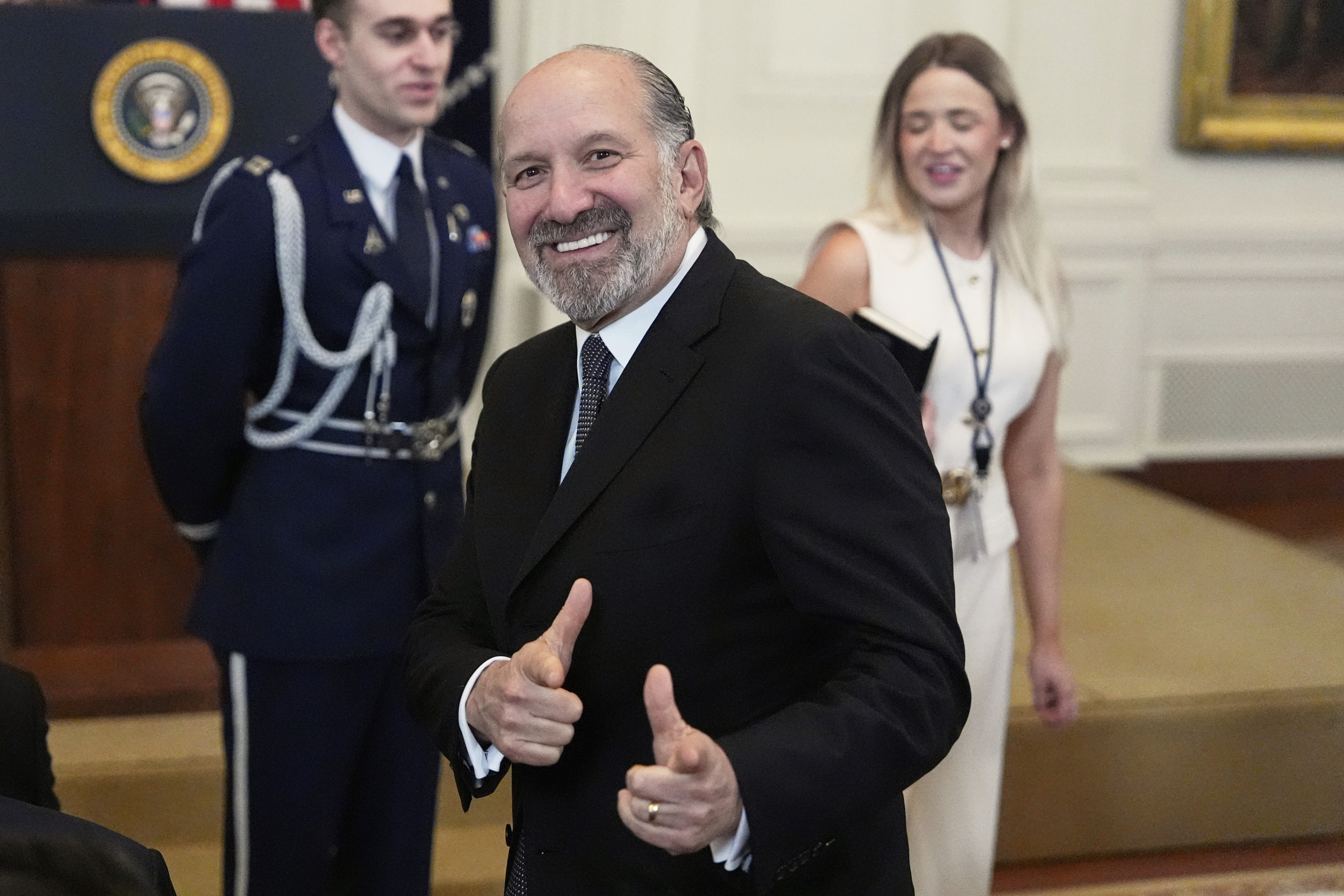
During an interview appearance on CBS News’ Face the Nation on Sunday, Commerce Secretary Howard Lutnick said President Donald Trump‘s sweeping new tariffs would drive as much as 1.5 percent gross domestic product (GDP) growth and open hundreds of billions in export opportunities.
Lutnick also outlined the administration’s timeline for renegotiating major trade deals, challenged European threats of retaliatory tariffs, and accused Federal Reserve chair Jerome Powell of inflicting economic pain on Americans through high interest rates.
Why It Matters
The Trump administration’s latest round of tariffs—including a general 10 percent levy on U.S. imports and even higher rates on key trading partners—marks an expansion of trade policy intended to address longstanding U.S. trade deficits.
Business and policy analysts have expressed concern about the impact tariffs would have since they’re expected to lead to higher prices on imported goods, which could spur inflation and potentially dampen consumer spending.
What To Know
Lutnick projected that the new tariffs and subsequent trade negotiations could deliver between $300 and $400 billion of opportunity.
“That’s up to 1.5 percent GDP growth because the president’s going to open all these markets up,” he told host Margaret Brennan.
The commerce secretary added that Trump’s tariffs would force countries across the globe to “open their markets” to the U.S., which would allow American businesses to expand and sell overseas.
“You should assume that the small countries, the Latin American countries, the Caribbean countries, many countries in Africa, they will have a baseline tariff of 10 percent, and then the bigger economies will either open themselves up or they’ll pay a fair tariff to America,” Lutnick said.
The commerce secretary confirmed that Trump administration’s August 1 tariffs deadline remained firm, and most major U.S. trading partners can expect to see a significant rise in their tariff rate. However, Lutnick said the U.S. was still open to negotiations after the deadline passes.
“President Trump is going to deliver for the American people. [The] next two weeks are going to be weeks for the record books,” he added.
Meanwhile, Mark Zandi, chief economist at Moody’s Analytics, told ABC News on Saturday that he believed tariff revenue could exceed $300 billion by the end of 2025, nearly 1 percent of U.S. GDP.
However, he added that “it would not be prudent for lawmakers to count on this revenue in the future.”
“It is unclear whether the tariffs will remain in place given they may be found to be illegal or future presidents may decide to lower or eliminate them under executive order,” Zandi said.
Alex Brandon/AP
Lutnick Reveals Timeline for Trump Renegotiating USMCA Deal
Lutnick told Brennan that Trump intends to renegotiate the United States-Mexico-Canada Agreement (USMCA) when the agreement comes up for review. The agreement was signed in 2020 to facilitate trade and stimulate economy and job growth in North America.
He added that Trump will begin renegotiating one year from now, with the aim of securing greater market access for U.S. businesses and protecting American manufacturing jobs.
“It makes perfect sense for the president to renegotiate it,” he said. “He wants to protect American jobs. He doesn’t want cars built in Canada or Mexico when they can be built in Michigan and Ohio,” Lutnick said.
Lutnick Suggests Europe Will Cave Over Tariff Threats to Boeing, Bourbon
Lutnick addressed retaliatory threats from Europe targeting American goods during the interview.
The European Union (EU) has finalized a list of U.S. goods worth $84 billion, including Boeing aircraft, American cars and bourbon, that they will hit with retaliatory tariffs if the trade war escalates.
Lutnick said he was confident the EU would cave and open their market to the U.S. before it got to that point.
“The president and the European Union, these are the two biggest trading partners in the world, talking to each other. We’ll get a deal done. I am confident we’ll get a deal done,” he said.
Jerome Powell ‘Torturing’ America, Says Lutnick
Lutnick sharply criticized Powell for maintaining high interest rates, which he said costs “us, you and me and the American people, more than $500 billion.”
“I think he’s costing us $700 billion a year by keeping rates too high. It’s just wrong. I don’t know why he’s torturing America this way. Our rates should be lower.”
He predicted the Fed would be forced to lower rates, making mortgages “so much better off under Donald Trump.”
What People Are Saying
Peter Schiff, chief economist and global strategist for Europac, wrote on X, formerly Twitter, on last month: “Tariffs are not working. The U.S. trade deficit in goods surged to $96.6 billion in May, up 11% from April and 6.5% above expectations. Most problematic was the 5.2% decline in exports. Trump’s goal to reduce trade deficits while expanding markets for U.S. exports has backfired.”
Brad Setser, an economist at the New York City-based Council on Foreign Relations, recently wrote on X: “I am not yet seeing a significant tariff impact on trade in capital goods — and I do think the ongoing rise in the US deficit here is a problem (capital goods are a sector where the US should be competitive).”
Denmark’s foreign minister, Lars Løkke Rasmussen, told reporters this week after Brussels suspended its retaliatory tariffs on U.S. goods in hopes of reaching a trade deal: “We shouldn’t impose countermeasures at this stage, but we should prepare to be ready to use all the tools in the toolbox. So we want a deal, but there’s an old saying: ‘If you want peace, you have to prepare for war.'”
What Happens Next?
The full economic and political consequences of the tariffs will likely unfold in the coming months, as the impact on trade balances, job growth, and consumer prices becomes clearer.
